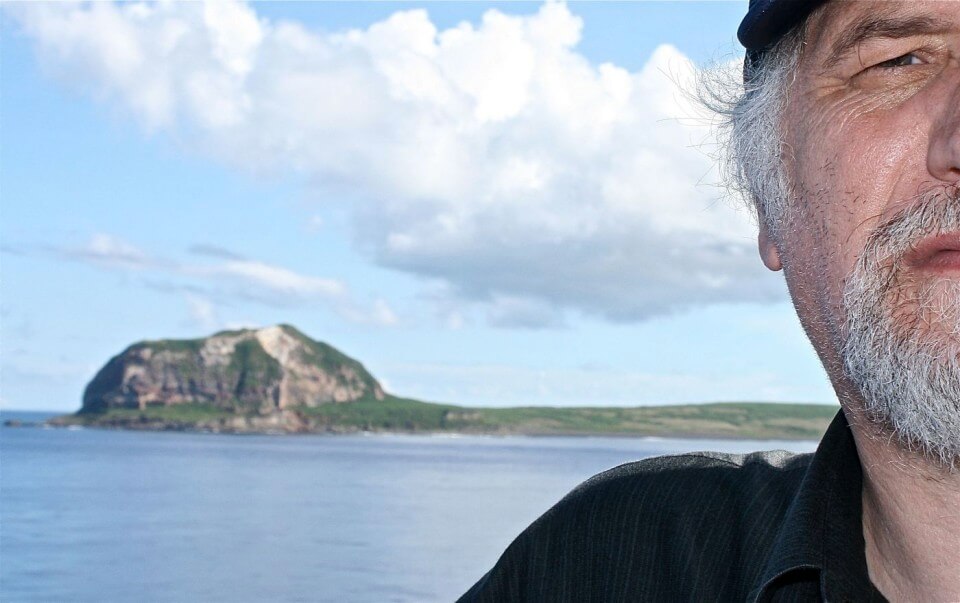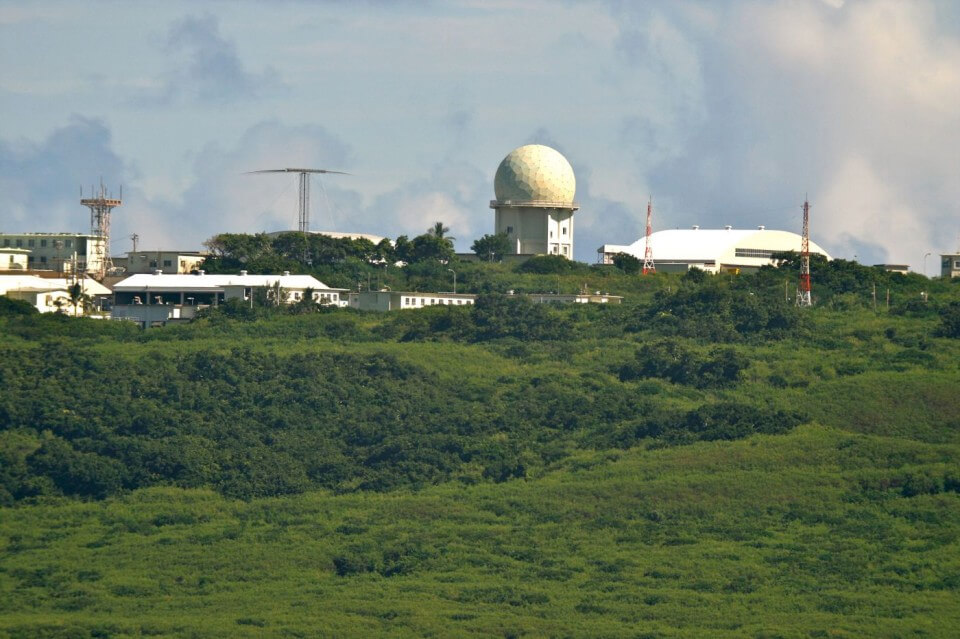Ricochet is the best place on the internet to discuss the issues of the day, either through commenting on posts or writing your own for our active and dynamic community in a fully moderated environment. In addition, the Ricochet Audio Network offers over 50 original podcasts with new episodes released every day.
Like this post? Want to comment? Join Ricochet’s community
of conservatives and be part of the conversation. Join Ricochet for Free.





Do you think that if we had offered them a negotiated end to hostilities where they got to return to their country and retain a few of the more pointless islands they would have been able to save face and end the war?
One of the best books on the topic is Japan’s Longest Day. If you read that (it tells the story from the Japanese side) it is hard to believe Japan was negotiating seriously for a peace settlement. Or rather, they were negotiating like the Iranians are negotiating today. But Truman was not Obama, worse luck for Imperial Japan.
Another book worth reading is Hell to Pay: Operation Downfall and the Invasion of Japan, 1945-1947. It is another book which makes it hard to believe Japan was negotiating seriously.
Seawriter
It’s an interesting point. From an educational perspective arguing about the actual events isn’t fruitful – I think it inconceivable that in those specific circumstances any President of the U.S. would not have dropped the bomb. However, talking through the moral, just war and utilitarian arguments as a method about thinking how we might act in the future are useful. I think it would be particularly instructive to first discuss the abstract concepts and then bring students through the actual sequence of events, influences and information that U.S. decision makers had to help them learn about the realities of making decisions in real time, decisions that will have terrible consequences no matter what one decides.
I’d also suggest Downfall and the Michael Kort essay referenced in the Ricochet post I did last week on this topic.
This is me. Behind me, Iwo Jima. In battling for this worthless rock, 26,000 of 70,000 Americans were casualties–6800 dead–along with 22,000 Japanese. Iwo is now a Japanese weather outpost. Access is so tightly controlled that our scientific tour was forbidden to come pay homage to our dead.
Behind me, Iwo Jima. In battling for this worthless rock, 26,000 of 70,000 Americans were casualties–6800 dead–along with 22,000 Japanese. Iwo is now a Japanese weather outpost. Access is so tightly controlled that our scientific tour was forbidden to come pay homage to our dead.  Japanese behavior at Iwo, Okinawa, Bataan, etc, is adequate reply to arguments that negotiation could have ended the Pacific war. This was, one recalls, only six months before Hiroshima and Nagasaki.
Japanese behavior at Iwo, Okinawa, Bataan, etc, is adequate reply to arguments that negotiation could have ended the Pacific war. This was, one recalls, only six months before Hiroshima and Nagasaki.
My dear friend Gerry was a saxophonist in the President’s Own. In 1943, he was given infantry training and inserted into the 5th Marine Division. We both saw Iwo, Gerry from the ground, I from the sea. How grateful am I not to be of Gerry’s generation. Imagine attacking this beach from the sea, under machine gun fire.
My uncle Jim, a pilot at Okinawa, also likely would have died in the invasion.
“Complex” shmomplex. This was total war. Fie on the argument that Truman was wrong, that it was immoral to target cities. Nanking is a city, as are Singapore, Manila and Honolulu. Truman’s obligation was to America.
I honor Mr Truman for sparing my countrymen (and Japanese civilians) who would have died in an invasion of the Home Islands.
I, too, Love the Bomb. It saved Gerry and Jim. Absent the Rosenbergs, it would have given us a 50 year Pax Americana. Imagine modern America without the Cold War, Korea, VietNam.
It’s a delicate point in negotiating. Apart from all the issues of deviating from unconditional surrender that would have been caused with England and the Soviet Union there was a practical concern. We were reading the cables and knew that the military was not reconciled to surrender and we were left with the impression that any situation where America made the first offer would be seen as weakness and actually prolong the war; there is copious evidence that’s exactly how their delusional military would have interpreted it and was precisely what the Japan military was counting on when we landed at Kyushu – that they could inflict so many casualties they could obtain a more favorable settlement.
The structure of the Japanese cabinet and the role of the military in the government easily led to paralysis in decision making and that is what happened in the summer of 45 when the military would not take responsibility for losing the war and call for its end.
It’s worth remembering that when the Emperor ordered the surrender, his officers launched a coup against the god-king rather than follow it. And that was after the bombs. I concur with Mark that so long as the military leadership was against peace, the possibility of a negotiated peace was a farce.
But a negotiated peace wasn’t desirable, anyway. World War I had ended with a negotiated peace with an almost conquered Germany, but Germany had not actually been invaded -and so the war ended in an unsatisfactory mess that guaranteed another war in 20 years. Americans had never accepted such a victory -were so pissed at the end of Versailles they refused to ratify the armistice.
We burned our own cities in the Civil War to make sure the war would end decisively. We burned Germany from end to the other, and had we not had the Atomic Bombs, we’d have burned Japan from one end to other until there wasn’t one stone on top of the other, and until they were broken, never to do this again.
And the experience of Korea, Vietnam, and First Gulf War show me that this is the correct way to fight a war. Pulling your punches just delays the end and sets you up for another war in 20 years.
And since that was the desirable end, I don’t see how it is worse to do it with one bomb than with thousands.
On the style of the video -does it bother anyone else how the words as he says them flit across the screen? It bugs me. If I want subtitles, I’ll turn them on. And you can just put subtitles on the video. I can hear him fine. I don’t need speech bubbles.
If you must put text on the slides, just put the highlights.
If anyone is interested, Milt Rosenberg podcast, July 21, Last to Die. About Anthony Marchione, the last American killed in combat in World War II.
Very interesting, informative, and heartbreaking story of Anthony Marchione. He was killed while doing non-combat photography in Japan. He signed up for that mission to accrue enough hours to get home.
The author, Stephen Harding, talks about Marchione, the bombs, the split leadership in Japan, the Japanese warrior mindset, their inability to come to agreement on unconditional surrender, and finally the coup by some to gain enough control to commit to the unconditional surrender.
here is a link to the podcast series.
http://ricochet.com/series/milt-rosenberg-show/
I’ve lived in Japan for 25 years now, when I first came here I taught English part time, the school I worked at had a “Conversation Lounge” where high level students could go and just hang out with the teachers and chat, no structured lesson. I had the great luck of spending many hours chatting with an older retired fellow who’s family was from the upper levels of Japanese society. He enjoyed just chatting with us foreigners. He told me the story of seeing the Doolittle raid planes flying over head just before they dropped their bombs, he said he could see the face of the pilot they were that low. The very next day his grand father took him and his younger brother (he was maybe 13-14 years old) on a train ride out of the city to the country side where they had a summer home. On the way in the train the two boys were told to change clothes, they changed into girls clothes and took girls names. They lived the rest of the war in the country side pretending to be girls. He told me that his grandfather had already sent all of his son’s and son-in-laws to the war effort, and after the Doolittle raid he felt that the war would be lost, and someone had to survive to carry on the family.
He was convinced that his young grandsons would be called up for duty and sent off to fight a war they could not win, but would fight to the bitter end, never surrendering. He said that even as a girl they were required to show up and take part in militia practice, with what he described as a sharpened stick.
He went on to have a great career and was very successful in life but he also said that every male member of his fathers generation died in the war, and most of his own generation as well, some as young as 15 went to fight never coming back.
I asked him what he thought of the Hiroshima bombing once, he said the thing he could not understand is why it was not used sooner, he said that if Japan had the bomb they would have used it the moment it became operational, and they would have had no problem with hitting a city like Los Angles.
Domo
That is an amazing and sad story.
You’re making all kinds of assumptions about Ferguson’s position that he doesn’t hold and I didn’t imply. Here’s how I framed his contention:
Allied military actions are not synonymous with American culture nor is anyone denying Japanese culpability for the invasion of southeast Asia and Pearl Harbor (if you’re unfamiliar with Ferguson, then trust me he doesn’t belong to the Raimondo/Buchanan/Rothbard school of “the oil embargo was a provocation!”) If you can disprove that the Allies killed surrendering Japanese or that it happened so rarely as to be insignificant than you’d be on your way to refuting Ferguson.
I’m not that convinced that Japan’s “cult of suicide” was as unique as it’s made out to be. Seppuku is one of those factoids we all know about Japanese culture and Kamikazes were too sensational not to leave an impression on the American psyche. Yet, how many western nations have sent legions of their men straight into the hands of death? They may not have been explicitly sent on suicide missions, but the soldiers on the front-lines of many a European battle must have known they were going to die (as did the people commanding them to do so).
As for the soldiers who stuck it out on an island decades after the war ended, that says something about nationalism, militarism, and perhaps stupidity, but nothing about a culture of suicide. How many soldiers are we even talking about? Is it enough to constitute a significant phenomenon rather than an interesting tidbit? The fact that such people are granted respect in Japan, may indicate Japan’s refusal to recognize its own crimes, but I imagine most countries would take pride in soldiers with that level of dedication.
I remain puzzled by what you report about Ferguson. Do you know precisely what he said? The Allies lost all the early battles with Japan.
I know that the Japanese government and military told Japanese civilians on Saipan and Okinawa that the American soldiers would kill them and rape the women which led to the enormous tragedy of thousands of suicides but this is the first I’ve heard of this thesis.
Guruforhire, I think it’s a form of revisionism to impose upon the historical actors a conceit–that something short of unconditional surrender was acceptable–that none of them held in order to come to the conclusion that what they did was immoral.
I also think that your view is revisionist because it is premised upon the notion that the allies should have tried harder to negotiate a conditional surrender. But, there’s a mountain of historical evidence that the Japanese were preparing for a lengthy and suicidal battle on the mainland, a battle which the American military was increasingly unsure it could win by seaborne invasion. It’s unfathomable to me that any allied leader with knowledge of those military preparations, and knowledge of the diplomatic cables showing top Japanese leaders were not yet committed to surrender, would engage in peace talks with the Japanese on any terms. Japanese words and actions showed that such negotiations would be fruitless. The only rational course–and the course aimed at saving the most American lives–was to unleash hell against the Japanese. And, it worked.
It was part of the War of the World series (think it aired on Britain’s Channel 4) which he hosted and was based on his book of the same name. It’s possible that the show deviated from his opinions. Also entirely possible my memory is faulty–it’s been months since I watched it on YouTube. I don’t have time right now, but later I might try to find what he actually said.
I remember my father coming home from a meeting at the Wilson International Center for Scholars and saying he’d had a conversation with a couple of Japanese historians who said the same thing—“We would have dropped it on you.”
I didn’t know anything about the Japanese end-game (thanks, Mark!) but I know that the Germans had major splits within the upper ranks of the military and the government about whether and when to try to negotiate terms. Himmler, in particular, wanted to surrender to the Americans or British only—his fantasy being that the Anglo-Americans would recognize Himmler himself as the new leader of Germany, and join forces with the remnants of the Wehrmacht against the Commies. Himmler even allowed numbers of Scandinavian Jews to be repatriated from the camps as a good-faith gesture (via Count Bernadotte of Sweden).
Churchill and Truman (after Roosevelt’s death) refused to countenance even the appearance of a separate negotiation, forwarding news of all such overtures directly to Stalin with reiterated declarations of good faith and solidarity. Presumably, some number of Allied, German and civilian life could have been spared had the Big Three not insisted on unconditional surrender to all Allied forces.
Peter: I return to this thread to point to two interesting pieces I just read at Public Discourse. But first a side trip.
Yesterday, my family and I attended a Rite of Candidacy ceremony at St. Mary’s Seminary in Houston, TX. A young man we have been financially supporting in his vocation (who was my oldest son’s roommate at Franciscan University of Steubenville) participated in this rite – he will be ordained a permanent deacon next June, and a priest the following year; God willing. This beautiful mass was celebrated by Bishop Michael J. Sis, of the Diocese of San Angelo, TX. In his homily he spoke beautifully to us all on the theme of choosing God, on vocation, and on choices and consequences. But at the end of mass he asked us all to think of the words he spoke, and quite rightly said that we probably won’t recall anything. But he exhorted us to remember one thing that he had stressed in the homily: every choice we make has consequences. And I recalled that message very clearly in reading these two articles by Christopher O. Tollefsen:
On the Dangers of Thanking God for the Atom Bomb
and the related
Why the “Catholic” “Pro-Life” Case for the Bomb Fails
After witnessing the above event this weekend, and reading these 2 articles, this paraphrase of GKChesterton holds for me: Catholic morality has not been tried and found wanting; it has been found difficult and not tried.